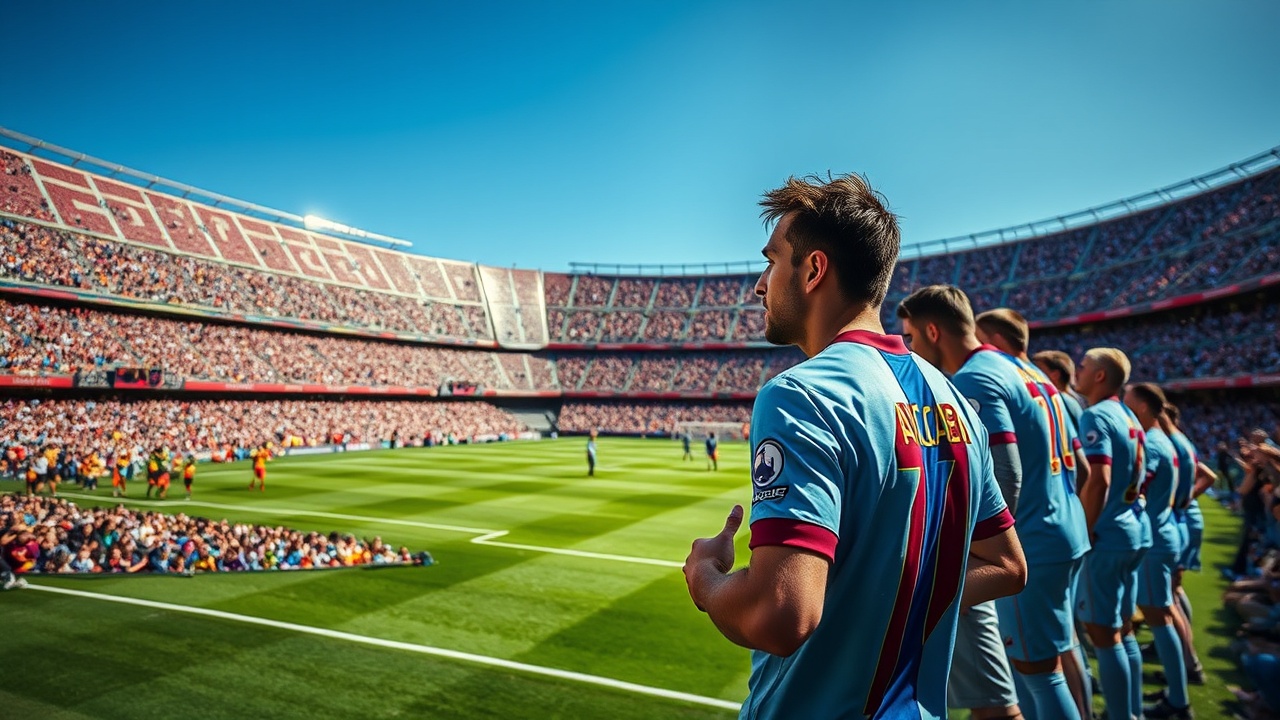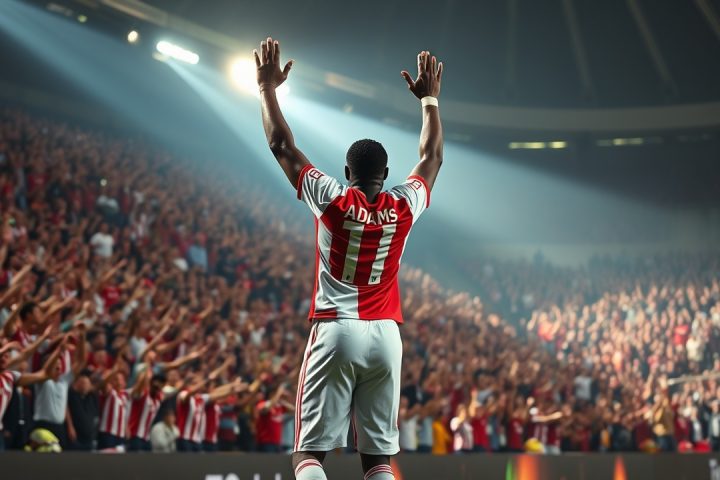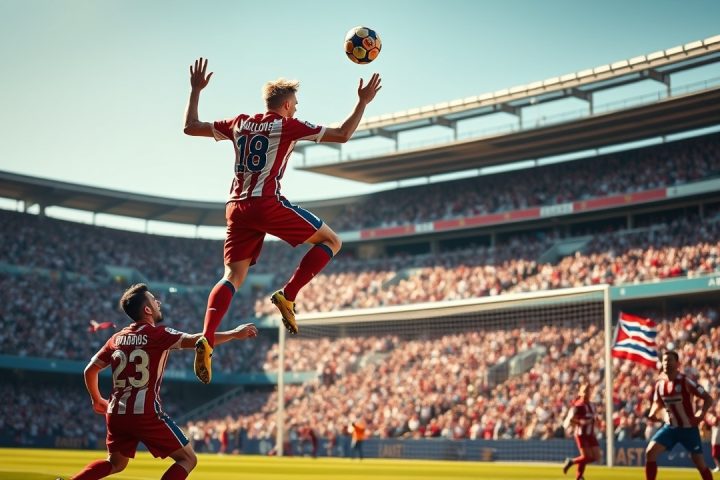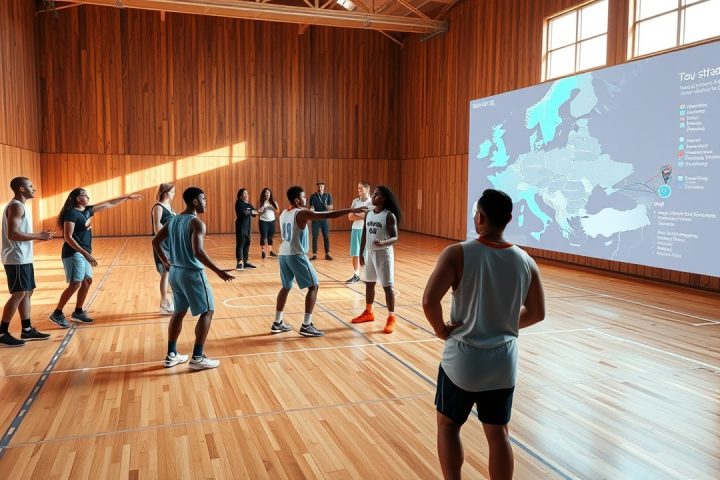Barcelona’s Struggles: A Deep Dive
During the latest international break, if you find yourself in conversation with a Barcelona supporter who’s arguing that the team’s heavy 4-1 loss to Sevilla could have been avoided with a successful penalty by Robert Lewandowski or a missed chance by Roony Bardghji, it might be wise to just nod politely, buy them a drink, and ensure they get home alright. This perspective reveals a deeper issue: a denial about their team’s serious struggles. A sense of impending dread seems to be gnawing at their once-proud pride.
Performance Analysis
Indeed, it’s true that Lewandowski’s failed penalty could have changed the scoreline to 2-2. In that theoretical situation, Bardghji might have even pushed the score to 3-2 for the reigning La Liga champions. But such hypotheticals often serve as mere fishing stories, replete with lost opportunities. However, the reality is that the team didn’t just lose—they were thoroughly outplayed, and the defeat had been anticipated for several weeks.
Barcelona has logged nearly 1,000 competitive minutes this season across eight domestic matches and two in European competition. If we assess their performance generously, they’d barely managed to impress for 480 minutes, equating to a dismal 48% efficiency rate. This is alarmingly low for a club aiming to not only defend its titles but to also enhance its standing in the UEFA Champions League.
Coaching and Team Dynamics
Flick, the coach, and the players themselves recognize this slump. The warning signs were evident right from Matchday 1 against Mallorca, where, despite encountering a team reduced to nine men and benefitting from a debatable goal, Barcelona’s lackluster performance led to a harsh rebuke from their coach.
“I didn’t like our performance—we were at about 50% focus,”
Flick noted, highlighting the need for intensity even against a weakened opponent.
Their struggles continued throughout subsequent matches, from a tepid performance against newly promoted Levante—where they were fortunate to escape a heavier defeat—to a draw against Rayo Vallecano, marked by defensive errors and a lack of control. Flick’s observation that
“last year we were a proper team, but ego kills success”
left a heavy impression, hinting at internal strife and underlining the team’s current lack of cohesion. Alarmingly, a leading Catalan newspaper warned that if things didn’t improve, Flick might not last through the season.
Exploiting Weaknesses
Meanwhile, a struggling Real Oviedo managed to exploit Barcelona’s weaknesses before ultimately succumbing to a 3-1 defeat in which they unveiled significant flaws in Barcelona’s defending. A week later, Sevilla’s coach, Matías Almeyda, spot-on with his assessment of Barcelona’s fragility, motivated his players, and Sevilla overwhelmed the Catalans, an outcome that could have been even worse had they converted more chances. Observing alongside Sevilla legend Diego Capel during the match, it was clear that years of expectation had conditioned many to assume that any lapse against giants like Barcelona signifies doom.
Yet, Barcelona’s inability to capitalize on their own scoring opportunities—like a brilliant assist from Pedri and numerous promising moments—illustrated their downward trajectory. Capel, who often pessimistically critiqued his team, grudgingly admitted that Barcelona seemed to be woefully underperforming.
Current Challenges
Returning to a reflective stance, I earlier suggested that Barcelona could still be favorites for multiple domestic trophies while simultaneously grappling with an internal crisis, but the situation now feels tenably precarious. Issues abound—constant shifts in home venues, critical injuries to key players like Lamine Yamal and Raphinha, and the departure of veteran defender Iñigo Martínez have left the squad struggling to find stability.
Moreover, the erosion of relations between the board, the coach, and the squad—especially concerning goalkeeper Marc-André ter Stegen’s treatment—suggests deeper issues at play. The pressures of aligning with Financial Fair Play conditions compound these challenges, causing further discontent.
Looking Ahead
All these factors have contributed to a team appearing drained and lacking the vigor observed just last season. As Pedri lamented post-match against Sevilla, the lack of intensity and quality showcased in their performance exemplifies their current plight. Hansi Flick has made it clear that a turnaround is critical, indicating they must return from the international break with renewed vigor or their trophy aspirations for the season may well be dashed beyond repair.
The drop in performance metrics, such as their inability to recover the ball compared to last season’s promising efforts, paints a bleak picture for Barcelona. Flick’s optimistic assurances may merely be a desperate call to arms; for a real transformation, the team will need to cast aside egos and refocus on the hard work necessary to reclaim their former glory.
In summary, unless significant reforms take place within the club’s structure and player mindset, Barcelona could face an uphill battle this season.




